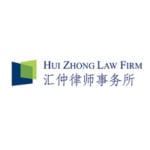-
Has your home state signed and / or ratified the ICSID Convention? If so, has the state made any notifications and / or designations on signing or ratifying the treaty?
Singapore has signed and ratified the ICSID Convention, with no notifications. The ICSID Convention is implemented in Singapore through the Arbitration (International Investment Disputes) Act 1968 (the “AIIDA”).
Pursuant to sections 4 and 5 of the AIDDA, Singapore has designated the General Division of the High Court as a Competent Court for the purpose of recognising and enforcing awards under Article 54(2) of the ICSID Convention.
-
Has your home state signed and / or ratified the New York Convention? If so, has it made any declarations and / or reservations on signing or ratifying the treaty?
Singapore has signed and ratified the New York Convention. Singapore made a reciprocity reservation under Article I(3) of the New York Convention, under which it will on the basis of reciprocity apply the New York Convention to the recognition and enforcement of only those awards that are made in the territory of another contracting state.
-
Does your home state have a Model BIT? If yes, does the Model BIT adopt or omit any language which restricts or broadens the investor's rights?
Singapore does not have a model BIT.
-
Please list all treaties facilitating investments (e.g. BITs, FTAs, MITs) currently in force that your home state has signed and / or ratified. To what extent do such treaties adopt or omit any of the language in your state's Model BIT or otherwise restrict or broaden the investor's rights? In particular: a) Has your state exercised termination rights or indicated any intention to do so? If so, on what basis (e.g. impact of the Achmea decisions, political opposition to the Energy Charter Treaty, or other changes in policy)? b) Do any of the treaties reflect (i) changes in environmental and energy policies, (ii) the advent of emergent technology, (iii) the regulation of investment procured by corruption, and (iv) transparency of investor state proceedings (whether due to the operation of the Mauritius Convention or otherwise). c) Does your jurisdiction publish any official guidelines, notes verbales or diplomatic notes concerning the interpretation of treaty provisions and other issues arising under the treaties?
List of Bilateral Investment Treaties (“BITs”)
- Bahrain
- Bangladesh
- Belarus
- Belgium and Luxembourg
- Bulgaria
- Burkina Faso (signed, but not ratified)
- Cambodia
- Canada
- Colombia (signed, but not ratified)
- Côte d’Ivoire
- Czech Republic
- Democratic People’s Republic of Korea
- Egypt
- France
- Germany
- Hungary
- Indonesia
- Iran
- Jordan
- Kazakhstan
- Kenya
- Kuwait
- Laos
- Latvia
- Libya
- Mauritius
- Mexico
- Mongolia
- Mozambique (signed, but not ratified)
- Myanmar
- Netherlands
- Nigeria (signed, but not ratified)
- Oman
- Pakistan
- Poland
- Qatar
- Russia
- Rwanda
- Saudi Arabia
- Slovak Republic
- Slovenia
- Switzerland
- Ukraine
- United Arab Emirates
- United Kingdom (“UK”)
- United States
- Uzbekistan
- Vietnam
- Zimbabwe (signed, but not ratified)
Other treaties facilitating investments
- Agreement between New Zealand and Singapore on a Closer Economic Partnership
- Armenia-Singapore Agreement on Trade in Services and Investment
- ASEAN-Australia-New Zealand Free Trade Area
- ASEAN-China Framework Agreement
- ASEAN-China Free Trade Area
- ASEAN Comprehensive Investment Agreement
- ASEAN-EU Cooperation Agreement
- ASEAN-Hong Kong, China SAR Investment Agreement
- ASEAN-India Framework Agreement
- ASEAN-India Free Trade Area
- ASEAN-Japan Comprehensive Economic Partnership
- ASEAN-Korea Framework Agreement
- ASEAN-Korea Free Trade Area
- ASEAN-US Trade and Investment Framework Agreement
- ASEAN Framework Agreement on Services
- Comprehensive and Progressive Agreement for Trans-Pacific Partnership (CPTPP)
- China-Singapore Free Trade Agreement
- Digital Economy Partnership Agreement (“DEPA”)
- European Free Trade Association-Singapore Free Trade Agreement (“ESFTA”)
- European Union-Singapore Digital Partnership (signed, but not ratified) (“EUSDP”)
- European Union-Singapore Investment Protection Agreement
- Gulf Cooperation Council-Singapore Free Trade Agreement
- India-Singapore Comprehensive Economic Cooperation Agreement
- Indo-Pacific Economic Framework for Prosperity (“IPEF”) Clean Economy Agreement
- IPEF Fair Economy Agreement
- IPEF Supply Chain Agreement
- Japan-Singapore Economic Partnership Agreement
- Kazakhstan-Singapore Services and Investment Agreement (signed, but not ratified)
- Korea-Singapore Free Trade Agreement
- MERCOSUR-Singapore Free Trade Agreement (signed, but not ratified)
- Pacific Alliance-Singapore Free Trade Agreement (“PASFTA”)
- Panama-Singapore Free Trade Agreement
- Peru-Singapore Free Trade Agreement
- Regional Comprehensive Economic Partnership Agreement (“RCEP”)
- Singapore-Australia Free Trade Agreement (“SAFTA”)
- Singapore-Australia Green Economy Agreement (“SAGEA”)
- Singapore-Costa Rica Free Trade Agreement
- Singapore-Jordan Free Trade Agreement
- Singapore-Taiwan Province of China Economic Partnership Agreement
- Sri Lanka-Singapore Free Trade Agreement
- Trans-Pacific Strategic Economic Partnership
- Turkey-Singapore Free Trade Agreement
- United Kingdom-Singapore Free Trade Agreement
- United States-Singapore Free Trade Agreement
Several of Singapore’s BITs contain provisions that require investments in Singapore to be specifically approved by the Economic Development Board (i.e. a statutory board under the Ministry of Trade and Industry of Singapore) before it qualifies as a protected investment under the relevant BIT (see for instance Article 2.1(a) of the Singapore-Egypt BIT; Article 2.1(b) of the Singapore-Laos BIT; Article 2.1(a) of the Singapore-Bangladesh BIT; Article 2.1(b) of the Singapore-Poland BIT; Article 2(a) of the Singapore-Kuwait BIT; and Article 2.1(b) of the Singapore-Hungary BIT.
a) Has your state exercised termination rights or indicated any intention to do so? If so, on what basis (e.g. impact of the Achmea decisions, political opposition to the Energy Charter Treaty, or other changes in policy)?
No, Singapore has not exercised termination rights nor indicated any intention to do so.
b) Do any of the treaties reflect (i) changes in environmental and energy policies, (ii) the advent of emergent technology, (iii) the regulation of investment procured by corruption, and (iv) transparency of investor state proceedings (whether due to the operation of the Mauritius Convention or otherwise).
Changes in environmental and energy policies: Singapore signed the SAGEA with Australia in 2022, which is the world’s first Green Economy Agreement. The SAGEA states that it does not create any binding obligations between the parties. Nevertheless, the SAGEA seeks to, among others, improve trade and investment in environmental goods and services and the green economy. For instance, under the SAGEA, the parties have agreed to cooperate to reduce tariffs and non-tariff barriers of over 350 environmental goods and 150 services, as well as align standards, technical regulations, metrology and conformity assessment procedures.
Other treaties with similar environmental and energy related goals and provisions include the EUSFTA, the UK-Singapore FTA, and the IPEF Clean Economy Agreement.
Advent of emergent technology: Singapore signed the DEPA in 2020, which was a first of its kind agreement addressing digital trade and emerging digital technology issues. Among other things, Article 10.2 of the DEPA expressly provides for cooperation between the parties to enhance trade and investment opportunities for Small and Medium Enterprises (“SMEs”) in the digital economy by, among others, obligating parties to continue cooperation in exchanging information and best practices in leveraging on digital tools and technology to improve SMEs’ access to capital and credit, SMEs’ participation in government procurement opportunities and other areas that could help SMEs adapt to the digital economy.
Singapore also subsequently entered into similar digital economy agreements with the EU (see the EUSDP), as well as with Australia, the UK and the Republic of Korea (effected as amendments to their respective FTAs with Singapore).
Regulation of investment procured by corruption: Several treaties expressly empower and/or obligate the parties to undertake anti-corruption measures. For instance, Article 13(2) of the Singapore-Indonesia BIT states that nothing in the BIT will prevent a party from undertaking measures to prevent and combat bribery and other forms of corruption in any investment activities within its territory, provided that such measures are not inconsistent with the BIT.
Article 17.9 of the RCEP also provides that each party shall, in accordance with its laws and regulations, take appropriate measures to prevent and combat corruption with respect to any matter covered by the RCEP. The CPTPP also has an entire chapter dedicated to transparency and anti-corruption matters. Article 26.7.1 of the CPTPP requires each party to adopt or maintain legislative and other measures to combat corruption, including the establishment of various corrupt acts as criminal offences. The IPEF Fair Economy Agreement also contains similar provisions on anti-corruption measures.
Some treaties also provide that parties may raise objections on the basis of corruption. For instance, Article 8.20(2) of the PASFTA and Article 14 of the Singapore-Indonesia BIT expressly state that a party may in any arbitration proceedings raise objections on the ground that an investment has been made, established, acquired or admitted through corruption. Many BITs also contain provisions that require the investment to be made in accordance with the national laws of the host state, which would include any anti-corruption laws (see for example Article 1 of the Singapore-Czech Republic BIT; Article 1 of the Singapore-Vietnam BIT; Article 1(2) of the Singapore-Qatar BIT; Article 1(1) of the Singapore-United Arab Emirates BIT; Article 1(2) of the Russian Federation-Singapore BIT; Article 1(1) of the Iran, Islamic Republic of-Singapore BIT).
Transparency of investor state proceedings: Singapore has signed several treaties which contain provisions that enhance the transparency of investor state proceedings. See for example, Article 29 of the SAFTA, Article 3.16 read with Annex 8 of the EUSIPA, and Article 8.26 of the PASFTA. Under these provisions, among other things, the following documents involved in arbitration proceedings are made available to the public: (a) pleadings, memorials, briefs and written submissions submitted to the tribunal; (b) minutes or transcripts of hearings of the tribunal; and (c) orders, awards and decisions of the tribunal. In addition, the tribunal must conduct hearings that are open to the public and make the appropriate logistical arrangements.
c) Does your jurisdiction publish any official guidelines, notes verbales or diplomatic notes concerning the interpretation of treaty provisions and other issues arising under the treaties?
No, the Singapore government does not publish official guidelines or notes verbales. Any diplomatic notes would usually accompany the text of the treaties.
-
Does your home state have any legislation / instrument facilitating direct foreign investment. If so: a) Please list out any formal criteria imposed by such legislation / instrument (if any) concerning the admission and divestment of foreign investment; b) Please list out what substantive right(s) and protection(s) foreign investors enjoy under such legislation / instrument; c) Please list out what recourse (if any) a foreign investor has against the home state in respect of its rights under such legislation / instrument; and d) Does this legislation regulate the use of third-party funding and other non-conventional means of financing.
No, Singapore does not have any legislation or instrument which directly target and facilitate foreign investment. However, Singapore has in place a business-friendly regulatory environment which seeks to encourage both domestic and foreign investment through various commercial incentives.
For example, Singapore has enacted the Economic Expansion Incentives (Relief from Income Tax) Act 1967 (the “ITA”), which promotes the establishment of pioneer industries and economic expansion generally through income tax relief. The ITA also offers specific tax incentives for companies engaged in research and development or intellectual property management. More information on the various incentives and schemes offered by Singapore can be found here: https://www.edb.gov.sg/en/grants/incentives-and-schemes.html.
Singapore also has a Global Investor Programme (“GIP”) which grants Singapore Permanent Residency to eligible global investors falling in four categories: (a) established business owners; (b) next generation business owners; (c) founders of fast growth companies; and (d) family office principals. To qualify for the GIP, investors must have a substantial business track record and successful entrepreneurial background. More information on the GIP can be found here: https://www.edb.gov.sg/en/grants/global-investor-programme.html.
-
Has your home state appeared as a respondent in any investment treaty arbitrations? If so, please outline any notable practices adopted by your state in such proceedings (e.g. participation in proceedings, jurisdictional challenges, preliminary applications / objections, approach to awards rendered against it, etc.)
No.
-
Has jurisdiction been used to seat non-ICSID investment treaty proceedings? If so, please provide details.
Yes. Singapore was notably designated as the seat in non-ICSID investment treaty arbitration proceedings arising from disputes between: (a) Sanum Investments Limited (“Sanum”) and the Lao People’s Democratic Republic (“Laos”); (b) Swissbourgh Diamond Mines (Pty) Ltd and other investors, and the Kingdom of Lesotho (“Swissbourgh”); and (c) Vedanta Resources plc and the Republic of India (“Vedanta”). These involved arbitrations before the Permanent Court of Arbitration (“PCA”) under the UNCITRAL Arbitration Rules 2010. Related ICSID Additional Facility (AF) arbitration proceedings between Laos and Sanum’s parent company, Lao Holdings NV, were also seated in Singapore.
In the Laos and Swissbourgh cases, applications were brought to set aside the investment-treaty awards before the Singapore Courts: see question 10 below. In the Vedanta case, an application was made before the Singapore Courts for declarations pertaining to the confidentiality of documents disclosed or generated in the arbitration: see question 8 below.
-
Please set out (i) the interim and / or preliminary measures available in your jurisdiction in support of investment treaty proceedings, and (ii) the court practice in granting such measures.
Interim and / or preliminary measures: Pursuant to section 12A(2) read with sections 12(1)(c) to 12(1)(j) of the Singapore International Arbitration Act 1994 (“IAA”), the General Division of the High Court has the power to make various interim orders, irrespective of whether the place of arbitration is Singapore. These include orders for: (a) the preservation, interim custody or sale of any property which is or forms part of the subject matter of the dispute; (b) the preservation and interim custody of any evidence for the purposes of the proceedings; (c) securing the amount in dispute; (d) ensuring that any award which may be made in the arbitral proceedings is not rendered ineffectual by the dissipation of assets by a party; and (e) an interim injunction or any other interim measure.
The Court may refuse to make an order under section 12A(2) if the fact that the place of arbitration is outside Singapore or likely to be outside Singapore when it is designated or determined makes it inappropriate to make the order (section 12A(3)).
The Court can only make orders under section 12A(2) if or to the extent that the arbitral tribunal (or any other institution / person vested with power in that regard) has no power or is unable for the time being to act effectively (section 12A(6)). Further, an order made under section 12A(2) ceases to have effect in whole or in part (as the case may be) if the arbitral tribunal makes an order which expressly relates to the whole or part of the order under section 12A(2) (section 12A(7)).
In cases of urgency, the Court may, on the application of a party or proposed party to the arbitral proceedings, make such interim orders as the Court thinks necessary for the purpose of preserving evidence or assets (section 12A(4)). Conversely, if the case is not one of urgency, the Court can only make such interim orders on the application of a party (upon notice to the other parties and to the arbitral tribunal) made with the permission of the arbitral tribunal or the agreement in writing of the other parties (section 12A(5)).
Further, under section 13 of the IAA, any party to an arbitration agreement may request for the issue of an order to attend or an order to produce documents.
Court practice in granting such measures:
The Singapore Court generally emphasises the principle of minimal curial intervention in arbitral proceedings and is therefore reluctant to intervene with an arbitral tribunal’s exercise of procedural discretion. This is demonstrated by the case of Republic of India v Vedanta Resources plc [2021] 2 SLR 354.
In Vedanta, the Republic of India (“India”) sought to implement a regime to permit cross-disclosure of documents between a Singapore-seated investment-treaty arbitration (the “Vedanta Arbitration”) and a separate but related investment-treaty arbitration seated in the Netherlands. The tribunal in the Vedanta Arbitration (the “Vedanta Tribunal”) held that an implied obligation of confidentiality applied in every arbitration governed by Singapore procedural law, although an exception could be made in investment treaty arbitrations depending on the circumstances. The Vedanta Tribunal held that on a case-by-case basis, this exception could be applied together with its procedural powers under the applicable arbitration rules to permit cross-disclosure of documents. India subsequently applied on two occasions to the Vedanta Tribunal for cross-disclosure of certain documents – the first application was partially allowed while the second application was rejected. India thereafter sought declarations from the Singapore High Court (“SGHC”) that: (a) documents disclosed or generated in the Vedanta Arbitration were not confidential or private; and (b) India would not be in breach of any obligation of confidentiality or privacy if it were to disclose those documents.
The SGHC dismissed India’s application, which decision was upheld by the Singapore Court of Appeal (“SGCA”). The SGCA held among other things that (a) granting India’s application would violate the principle of minimal curial intervention in arbitral proceedings, which is an essential feature of Singapore’s lex arbitri; and (b) India was at liberty to reapply to the Vedanta Tribunal for reconsideration of its decisions (at [47] to [51]).
-
Please set out any default procedures applicable to appointment of arbitrators and also the Court's practice of invoking such procedures particularly in the context of investment treaty arbitrations seated in your home state.
Default procedures: The default procedures applicable to the appointment of arbitrators are set out in sections 9 to 9B of the IAA read together with Articles 10 and 11 of the UNCITRAL Model Law on International Commercial Arbitration (the “Model Law”). Section 8(2) of the IAA also designates the president of the Court of Arbitration of the Singapore International Arbitration Centre (the “SIAC President”) as the default authority competent to perform the appointing functions under Articles 11(3) and 11(4) of the Model Law.
Pursuant to Article 11(2) of the Model Law, the parties are free to agree on a procedure of appointing the arbitrator or arbitrators. Where the parties have not agreed on the number of arbitrators, section 9 of the IAA provides that there is to be a single arbitrator.
Where the parties have failed to agree on the appointment procedure, in an arbitration with three arbitrators, each party must appoint one arbitrator, and the parties must by agreement appoint the third arbitrator (section 9A(1) of the IAA). If a party fails to appoint the arbitrator within thirty days of receipt of a request to do so from the other party, or where the parties fail to agree on the appointment of the third arbitrator within thirty days after the receipt of the first request by either party to do so, the appointment will be made, upon request of a party, by the SIAC President (see Article 11(3)(a) of the Model Law and section 9A(2) of the IAA). In an arbitration with a sole arbitrator, if the parties are unable to agree on the arbitrator, the arbitrator shall be appointed, upon request of a party, by the SIAC President (Article 11(3)(b) of the Model Law). Section 9B of the IAA also sets out the default appointment procedure for three arbitrators in an arbitration with three or more parties.
Pursuant to Article 11(4) of the Model Law, where: (a) a party fails to act in accordance with the appointment procedure agreed upon by the parties; (b) the parties, or two arbitrators, are unable to reach an agreement under such procedure; or (c) a third party, including an institution, fails to perform any function entrusted to it under such procedure, any party may request the SIAC President to take the necessary measure, unless the agreement on the appointment procedure provides other means for securing the appointment.
Pursuant to Article 11(5) of the Model Law, a decision on a matter entrusted by Articles 11(3) or 11(4) to the SIAC President shall not be subject to any appeal. The SIAC President, in appointing an arbitrator, shall have due regard to any qualifications required of the arbitrator by the agreement of the parties and to such considerations as are likely to secure the appointment of an independent and impartial arbitrator and, in the case of a sole or third arbitrator, shall take into account as well the advisability of appointing an arbitrator of a nationality other than those of the parties.
Court’s practice of invoking such procedures: The SGHC in KVC Rice Intertrade Co Ltd v Asian Mineral Resources Pte Ltd and another suit [2017] 4 SLR 182 has clarified that the SIAC President’s power under section 8 of the IAA read with Article 11(3) of the Model Law to make the necessary appointment to break a deadlock between parties on the appointment of arbitrators where an arbitration agreement was silent on the issue was only available if Singapore was the place of arbitration. The SGHC also opined that there was a prima facie case in favour of the view that the SIAC President can also act as an appointing authority where the arbitration agreement left the place of arbitration unclear or not determined, if he considered after due inquiry that the place of arbitration was Singapore (at [34], [35] and [63]). Where the SIAC President concludes that he has no power to act as the appointing authority, the Court may exercise its residuary jurisdiction and step in to directly appoint an arbitrator, provided that the dispute had some connection with Singapore (at [71] to [73]).
-
In the context of awards issued in non-ICSID investment treaty arbitrations seated in your jurisdiction, please set out (i) the grounds available in your jurisdiction on which such awards can be annulled or set aside, and (ii) the court practice in applying these grounds.
The IAA governs arbitral awards issued in international arbitrations seated in Singapore, including those issued in non-ICSID investment treaty arbitrations. The grounds on which such awards can be set aside are set out in Section 24 of the IAA and Article 34 of the Model Law.
Under Section 24 of the IAA, an arbitral award may be set aside if:
- the making of the award was induced or affected by fraud or corruption; or
- a breach of the rules of natural justice occurred in connection with the making of the award by which the rights of any party have been prejudiced.
Under Article 34 of the Model Law, an arbitral award may be set aside if:
- a party to the arbitration agreement was under some incapacity, or the said agreement is not valid under the law to which the parties have subjected it or, failing any indication thereon, under the law of the state;
- the party making the application was not given proper notice of the appointment of an arbitrator or of the arbitral proceedings or was otherwise unable to present his case;
- the award deals with a dispute not contemplated by or not falling within the terms of the submission to arbitration, or contains decisions on matters beyond the scope of the submission to arbitration, provided that, if the decisions on matters submitted to arbitration can be separated from those not so submitted, only that part of the award which contains decisions on matters not submitted to arbitration may be set aside;
- the composition of the arbitral tribunal or the arbitral procedure was not in accordance with the agreement of the parties, unless such agreement was in conflict with a provision of the Model Law from which the parties cannot derogate, or, failing such agreement, was not in accordance with the Model Law;
- the Court finds that the subject-matter of the dispute is not capable of settlement by arbitration under the law of the state; or
- the award is in conflict with the public policy of the state.
In addition, pursuant to Article 34(2) of the Model Law, the Courts retain a discretion not to set aside an award even if one of the prescribed grounds for setting aside has been made out.
The Singapore Courts have a well-established policy of minimal curial intervention as regards international arbitration.
In the Laos case, which was the Singapore International Commercial Court’s (“SICC”) first hearing involving an investor-State dispute (Lao Holdings NV and another v Government of the Lao People’s Democratic Republic [2021] 5 SLR 228 (“Laos SICC”)), the SICC affirmed that in the context of investment treaty arbitrations, the Singapore Courts will adopt a policy of minimal curial intervention. In particular, the Courts will not interfere with the merits of the case as the setting-aside application is not an opportunity for the applicant to take a “second bite at the cherry”. Instead, the threshold for intervention is high and the Courts will not intervene simply because it might have done things differently.
In that case, the SICC denied the investors’ applications to set aside two BIT awards rendered under the auspices of ICSID (specifically, under the ICSID (AF) Rules) and the PCA. The SICC’s decision was upheld by the SGCA in Lao Holdings NV and another v Government of the Lao People’s Democratic Republic [2023] 1 SLR 55 (“Laos CA”).
Relying on Article 34(2)(a)(iv) of the Model Law, the investors in the Laos case argued that there was a breach of the parties’ agreed arbitral procedure arising from decisions by the arbitral tribunals to admit new evidence. The SGCA rejected the argument and clarified that as a general rule, the Court will not revisit a tribunal’s construction of an agreed procedure in an arbitral agreement entered into between the parties where the construction is open on the text of the agreement. Consequently, even where there might be more than one construction and the Court might think a construction other than that chosen by the tribunal is to be preferred, the Court will accept the tribunal’s construction. On this basis, the SGCA declined to set aside the BIT awards as “[h]aving adopted a construction that was open, the Arbitral Tribunals had discharged their duty of construction” and therefore, “[t]here is no basis upon which the SICC or the court could or should properly revisit the exercise of that arbitral function”.
This case highlights Singapore’s pro-arbitration stance, and the reluctance of the Singapore Courts to interfere in the arbitral process to promote finality of arbitral awards. However, that is not to say that the Singapore Courts are unwilling to set aside an arbitral award where the high threshold is met. For instance, the SGCA in Laos CA noted that if a tribunal adopts and acts upon a construction of a term providing for an agreed procedure which is simply not open on any view of the text, then the tribunal cannot be said to have adhered to the agreed procedure. In such a case, it is open to the supervising Court to determine the content of the arbitral procedure.
In Singapore, whilst arbitral awards are not to be set aside on the merits for errors of fact or law, the Courts will generally undertake a de novo hearing of an arbitral tribunal’s decision on issues of jurisdiction. The same applies in the context of investment treaty arbitrations.
In Swissbourgh Diamond Mines (Pty) Ltd and others v Kingdom of Lesotho [2019] 1 SLR 263, the Kingdom of Lesotho applied to set aside a partial final award on jurisdiction and merits of an investment treaty arbitration seated in Singapore on the basis that the PCA tribunal exceeded its jurisdiction. The SGCA affirmed the SGHC’s decision to set aside the award in its entirety. Applying a de novo standard of review, the SGCA held, amongst other things, that the appellant’s claim did not satisfy the jurisdictional requirements under Article 28(1) of Annex 1 to the Protocol on Finance and Investment of the Southern African Development Community. The SGCA further held that the appellants’ failure to exhaust all local remedies was a matter that went towards the jurisdiction of the tribunal and not merely the admissibility of the claim.
-
In the context of ICSID awards, please set out: (i) the grounds available in your jurisdiction on which such awards can be challenged and (ii) the court practice in applying these grounds.
The AIIDA provides the legal framework for Singapore to recognise and enforce awards made under the ICSID Convention (namely, under Article 48 of the ICSID Convention) (“ICSID Awards”) which underscores Singapore’s commitment to upholding international legal standards for resolving disputes between investors and states. The AIIDA however does not provide any basis to challenge ICSID Awards outside of the annulment framework contained in the ICSID Convention, and the Singapore Courts are unable to set aside ICSID Awards.
Separately, ICSID has also developed the ICSID (AF) Rules for disputes that do not fully meet the jurisdictional requirements of the ICSID Convention. Awards issued under the ICSID (AF) Rules are treated similarly to non-ICSID awards in Singapore and are subject to the setting aside procedures governed by the IAA and the Model Law: see question 10 above and the discussion on the Laos case which concerned an application to set aside an award issued under the ICSID (AF) Rules.
-
To what extent can sovereign immunity (from suit and/or execution) be invoked in your jurisdiction in the context of enforcement of investment treaty awards.
Section 3 of the State Immunity Act 1979 (the “State Immunity Act”) provides that states are generally immune from the jurisdiction of the Singapore Courts save for certain exceptions.
In the context of investment treaty arbitration, a potentially applicable exception to sovereign immunity is set out in section 11 of the State Immunity Act, which provides that where a state has agreed in writing to submit a dispute which has arisen, or may arise, to arbitration, the state is not immune as respects proceedings in the Courts in Singapore which relate to the arbitration. However, this provision only has effect subject to any contrary provision in the arbitration agreement and does not apply to any arbitration agreement between states.
As regards execution, the general position in Singapore is that the property of a state must not be subject to any process for the enforcement of a judgment or an arbitration award (section 15(2) of the State Immunity Act). However, this does not prevent the issue of any process in respect of property which is for the time being in use or intended for use for commercial purposes (section 16(2) of the State Immunity Act). In this regard, property of a state’s central bank or other monetary authority is not to be regarded as in use or intended for use for commercial purposes (section 16(4) of the State Immunity Act).
-
Please outline the grounds on which recognition and enforcement of ICSID awards can be resisted under any relevant legislation or case law. Please also set out any notable examples of how such grounds have been applied in practice.
As stated at question 11 above, the AIIDA provides the legal framework for recognition and enforcement of ICSID Awards in Singapore.
Recognition
Under section 4(1) of the AIIDA, subject to procedural requirements and other provisions under the AIIDA, any person seeking recognition or enforcement of an award rendered pursuant to the ICSID Convention shall be entitled to have the award registered in the General Division of the High Court. The AIIDA does not set out any separate grounds for resisting recognition of ICSID Awards in Singapore. This is consistent with Article 54 of the ICSID Convention which obliges signatories to the ICSID Convention to recognise an ICSID Award as binding and enforce the pecuniary obligations imposed by that award within its territories as if it were a final judgment of a Court in that state.
Enforcement
Once an ICSID Award is registered, it shall have the same force and effect for the purposes of enforcement as if it had been a judgment of the General Division of the High Court given when the award was rendered pursuant to the ICSID Convention and entered on the date of registration under the AIIDA (section 5 of the AIIDA). Therefore, general grounds for resisting enforcement of a judgment of the General Division of the High Court also apply to resisting enforcement of an ICSID Award registered as a Singapore Court judgment. Examples of such grounds include non-compliance with procedural requirements (e.g. failure to comply with the procedure for service of the requisite documents on the state as set out at section 14 of the State Immunity Act), or that the entity against whom enforcement is attempted does not have sufficient connection to the award debtor.
There have been no publicly reported judgments concerning enforcement of ICSID Awards in the Singapore Court. However, in an oral ruling in May 2022, the SGHC refused an application by OI European Group B.V. to enforce an ICSID Award (obtained against the Bolivarian Republic of Venezuela) against a Venezuelan state-owned entity, PDV Marina S.A. (“PDVM”). The SGHC held that there would be a strong presumption that the separate corporate status of a separate juridical entity formed by a state for what are, on their face, industrial or commercial purposes, should be respected. Extreme circumstances would be required to displace such a presumption. In that case, the facts were not sufficiently extreme to displace the presumption that PDVM was a separate entity.
-
Please outline the practice in your jurisdiction, as requested in the above question, but in relation to non-ICSID investment treaty awards.
The recognition and enforcement of non-ICSID investment treaty awards are governed by the general regime governing the recognition and enforcement of international arbitration awards.
The grounds for refusing recognition and enforcement of such awards are exhaustively set out at Article 36(1) of the Model Law and sections 31(2) to (4) of the IAA. These grounds largely mirror the grounds for challenging non-ICSID investment treaty awards under Article 34(2) of the Model Law (see question 10 above), save that an award may also be refused recognition or enforcement in Singapore if the award has not yet become binding on the parties or has been set aside or suspended by a court of the country in which, or under the law of which, that award was made.
Despite the existence of the above grounds for resisting recognition and/or enforcement of a non-ICSID investment treaty award, practically speaking, the application of the doctrines of transnational issue estoppel and/or abuse of process may prevent the resisting party from successfully invoking the above grounds.
For instance, the doctrine of transnational issue estoppel may apply where a party is attempting to resist enforcement of a foreign arbitral award before the Singapore Court, but prior setting-aside proceedings in the seat court have already been dismissed. That party may be estopped from raising the same grounds which were already raised before the seat court in the Singapore enforcement proceedings.
In this regard, the case of The Republic of India v Deutsche Telecom AG [2024] 1 SLR 56 (“Deutsche Telecom”) concerned an attempt by India to resist enforcement of a foreign arbitral award which had been made against it in favour of Deutsche Telecom AG (“DT”). The underlying arbitration had been commenced pursuant to a BIT between India and Germany and had been governed by UNCITRAL Rules.
India brought an application to resist enforcement in Singapore on the grounds that the tribunal had lacked jurisdiction for various reasons. India’s earlier attempt to set aside the arbitration in its seat, Switzerland, on the same grounds had failed. The SGCA held that the doctrine of transnational issue estoppel was applicable in the context of international commercial arbitration at least in relation to a prior decision of a seat court regarding the validity of an award.
The SGCA also observed that, in the event that transnational issue estoppel does not apply, an enforcement Court in Singapore will typically accord primacy to a prior decision of the seat court by treating it as presumptively determinative of the matters dealt with in the judgment pertaining to the validity of the award. However, this would not be an absolute principle. It would also likely not apply to special categories of awards, such as ICSID Awards, as they exist within a self-contained system that is not subject to review by national Courts.
Where Singapore is the seat and prior setting-aside proceedings have already been brought and dismissed before the Singapore Court, the doctrine of abuse of process may also apply such that a party resisting recognition and/or enforcement will be precluded from relying on grounds which it could have raised during the prior setting-aside proceedings but chose not to. In Government of the Lao People’s Democratic Republic v Lao Holdings NV [2024] SGHC(I) 9, the SICC dismissed the latter’s attempt to resist the enforcement of the ICSID (AF) award (which was the subject of Laos SICC and Laos CA) on the grounds of an undisclosed fee agreement between the state and its counsel. The SICC held that those grounds could and should have been brought in the setting-aside application, and to raise them at the enforcement stage was a misuse or abuse of the process of the Court.
Where a party chooses not to pursue its active remedy of setting aside but chooses only to passively resist enforcement, the doctrines of transnational issue estoppel and abuse of process are unlikely to apply.
-
To what extent does your jurisdiction permit awards against states to be enforced against state-owned assets or the assets of state-owned or state-linked entities?
The general position in Singapore is that the property of a state must not be subject to any process for the enforcement of a judgment or an arbitration award, although this does not prevent the issue of any process in respect of property which is for the time being in use or intended for use for commercial purposes: see question 12 above.
However, as explained at question 13 above, in respect of the assets of state-owned or state-linked entities, there is a strong presumption that the separate corporate status of a separate juridical entity formed by a state for what are, on their face, industrial or commercial purposes, should be respected. This sets a fairly high threshold for the enforcement of awards against the assets of such entities.
-
Please highlight any recent trends, legal, political or otherwise, that might affect your jurisdiction's use of arbitration generally or ISDS specifically.
An increasing number of international arbitrations are being seated in Singapore, and consequently, the number of applications to set aside awards are also increasing.
With Singapore’s arbitration-friendly measures and its judiciary’s commitment to minimal curial intervention and the efficient enforcement of awards, Singapore will likely continue to rise as a neutral seat of arbitration.
For instance, Singapore introduced a legislative framework in 2017 to allow third-party funding (“TPF”) in international arbitration proceedings and related Court and mediation proceedings. This was met with positive response from the legal and business communities. The TPF framework has since been extended in 2021 to cover domestic arbitration proceedings and certain proceedings in the SICC, further fortifying Singapore’s position as an international commercial dispute resolution hub.
With the adoption of the Singapore Convention on Mediation which came into force in 2020, Singapore is also bolstering mediation as a complementary dispute resolution tool to arbitration. The convention is a framework for international settlement agreements resulting from mediation, concluded by parties to resolve a commercial dispute. It seeks to facilitate international trade and commerce by enabling disputing parties to easily enforce and invoke settlement agreements across borders. Such measures to bolster mediation complement Singapore’s attractiveness as a global hub for efficient and effective dispute resolution.
-
Please highlight any other investment treaty related developments in your jurisdiction to the extent not covered above (for e.g., impact of the Achmea decisions, decisions concerning treaty interpretation, appointment of and challenges to arbitrators, immunity of arbitrators, third-party funding and other non-conventional means of financing such proceedings).
In 2017, the SIAC issued the Investment Arbitration Rules which seek to adopt innovative solutions to common procedural issues arising in investment arbitrations. We anticipate that the use of these rules may increase in the coming years especially with ASEAN gaining prominence in the Asia-Pacific region. Further, with geopolitical instability and economic downturns, there is an increase in commercial and investor-state disputes. These trends emphasise the need for reliable arbitration systems, with Singapore’s neutrality and established legal infrastructure making it a preferred seat for such cases.
From cases such as Deutsche Telekom, Laos to Swissbourgh, the Singapore Courts are actively engaging with an increasing number of complex investment treaty cases seated in Singapore. The Singapore Courts have consistently adopted a robust approach in upholding the validity of arbitral awards, delicately balancing their pro-arbitration stance with the rule of law.
Singapore: Investment Treaty Arbitration
This country-specific Q&A provides an overview of Investment Treaty Arbitration laws and regulations applicable in Singapore.
-
Has your home state signed and / or ratified the ICSID Convention? If so, has the state made any notifications and / or designations on signing or ratifying the treaty?
-
Has your home state signed and / or ratified the New York Convention? If so, has it made any declarations and / or reservations on signing or ratifying the treaty?
-
Does your home state have a Model BIT? If yes, does the Model BIT adopt or omit any language which restricts or broadens the investor's rights?
-
Please list all treaties facilitating investments (e.g. BITs, FTAs, MITs) currently in force that your home state has signed and / or ratified. To what extent do such treaties adopt or omit any of the language in your state's Model BIT or otherwise restrict or broaden the investor's rights? In particular: a) Has your state exercised termination rights or indicated any intention to do so? If so, on what basis (e.g. impact of the Achmea decisions, political opposition to the Energy Charter Treaty, or other changes in policy)? b) Do any of the treaties reflect (i) changes in environmental and energy policies, (ii) the advent of emergent technology, (iii) the regulation of investment procured by corruption, and (iv) transparency of investor state proceedings (whether due to the operation of the Mauritius Convention or otherwise). c) Does your jurisdiction publish any official guidelines, notes verbales or diplomatic notes concerning the interpretation of treaty provisions and other issues arising under the treaties?
-
Does your home state have any legislation / instrument facilitating direct foreign investment. If so: a) Please list out any formal criteria imposed by such legislation / instrument (if any) concerning the admission and divestment of foreign investment; b) Please list out what substantive right(s) and protection(s) foreign investors enjoy under such legislation / instrument; c) Please list out what recourse (if any) a foreign investor has against the home state in respect of its rights under such legislation / instrument; and d) Does this legislation regulate the use of third-party funding and other non-conventional means of financing.
-
Has your home state appeared as a respondent in any investment treaty arbitrations? If so, please outline any notable practices adopted by your state in such proceedings (e.g. participation in proceedings, jurisdictional challenges, preliminary applications / objections, approach to awards rendered against it, etc.)
-
Has jurisdiction been used to seat non-ICSID investment treaty proceedings? If so, please provide details.
-
Please set out (i) the interim and / or preliminary measures available in your jurisdiction in support of investment treaty proceedings, and (ii) the court practice in granting such measures.
-
Please set out any default procedures applicable to appointment of arbitrators and also the Court's practice of invoking such procedures particularly in the context of investment treaty arbitrations seated in your home state.
-
In the context of awards issued in non-ICSID investment treaty arbitrations seated in your jurisdiction, please set out (i) the grounds available in your jurisdiction on which such awards can be annulled or set aside, and (ii) the court practice in applying these grounds.
-
In the context of ICSID awards, please set out: (i) the grounds available in your jurisdiction on which such awards can be challenged and (ii) the court practice in applying these grounds.
-
To what extent can sovereign immunity (from suit and/or execution) be invoked in your jurisdiction in the context of enforcement of investment treaty awards.
-
Please outline the grounds on which recognition and enforcement of ICSID awards can be resisted under any relevant legislation or case law. Please also set out any notable examples of how such grounds have been applied in practice.
-
Please outline the practice in your jurisdiction, as requested in the above question, but in relation to non-ICSID investment treaty awards.
-
To what extent does your jurisdiction permit awards against states to be enforced against state-owned assets or the assets of state-owned or state-linked entities?
-
Please highlight any recent trends, legal, political or otherwise, that might affect your jurisdiction's use of arbitration generally or ISDS specifically.
-
Please highlight any other investment treaty related developments in your jurisdiction to the extent not covered above (for e.g., impact of the Achmea decisions, decisions concerning treaty interpretation, appointment of and challenges to arbitrators, immunity of arbitrators, third-party funding and other non-conventional means of financing such proceedings).











